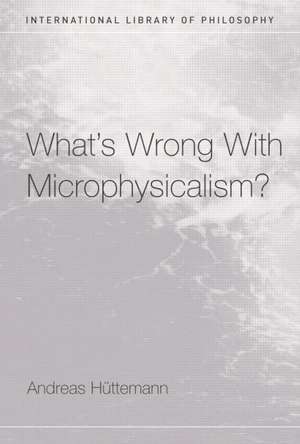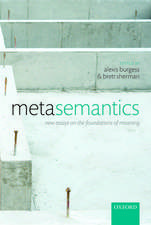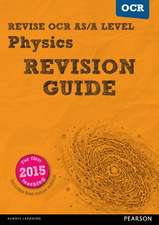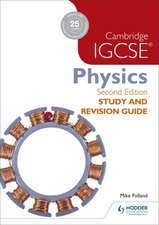What's Wrong With Microphysicalism?: International Library of Philosophy
Autor Andreas Huttemannen Limba Engleză Paperback – 9 feb 2015
Hüttemann agrees with the microphysicalists that we can explain compound systems by explaining their parts, but claims that this does not entail a fundamentalism that gives hegemony to the micro-level. At most, it shows that there is a relationship of determination between parts and wholes, but there is no justification for taking this relationship to be asymmetrical rather than one of mutual dependence. Hüttemann argues that if this is the case, then microphysicalists have no right to claim that the micro-level is the ultimate agent: neither the parts nor the whole have 'ontological priority'. Hüttemann advocates a pragmatic pluralism, allowing for different ways to describe nature.
What's Wrong With Microphysicalism? is a convincing and original contribution to central issues in contemporary philosophy of mind, philosophy of science and metaphysics.
| Toate formatele și edițiile | Preț | Express |
|---|---|---|
| Paperback (1) | 479.63 lei 6-8 săpt. | |
| Taylor & Francis – 9 feb 2015 | 479.63 lei 6-8 săpt. | |
| Hardback (1) | 997.11 lei 6-8 săpt. | |
| Taylor & Francis – 18 dec 2003 | 997.11 lei 6-8 săpt. |
Din seria International Library of Philosophy
-
 Preț: 306.06 lei
Preț: 306.06 lei -
 Preț: 304.87 lei
Preț: 304.87 lei -
 Preț: 381.64 lei
Preț: 381.64 lei - 8%
 Preț: 384.71 lei
Preț: 384.71 lei - 28%
 Preț: 244.18 lei
Preț: 244.18 lei - 36%
 Preț: 1041.33 lei
Preț: 1041.33 lei - 34%
 Preț: 1043.78 lei
Preț: 1043.78 lei - 36%
 Preț: 1573.08 lei
Preț: 1573.08 lei - 36%
 Preț: 1044.19 lei
Preț: 1044.19 lei -
 Preț: 392.87 lei
Preț: 392.87 lei - 37%
 Preț: 1348.74 lei
Preț: 1348.74 lei - 37%
 Preț: 1181.73 lei
Preț: 1181.73 lei - 25%
 Preț: 260.93 lei
Preț: 260.93 lei - 31%
 Preț: 459.60 lei
Preț: 459.60 lei - 39%
 Preț: 1700.69 lei
Preț: 1700.69 lei - 37%
 Preț: 1348.33 lei
Preț: 1348.33 lei - 18%
 Preț: 1005.67 lei
Preț: 1005.67 lei - 34%
 Preț: 1042.15 lei
Preț: 1042.15 lei - 37%
 Preț: 1019.72 lei
Preț: 1019.72 lei - 36%
 Preț: 1042.15 lei
Preț: 1042.15 lei - 39%
 Preț: 1690.08 lei
Preț: 1690.08 lei - 34%
 Preț: 1466.20 lei
Preț: 1466.20 lei - 37%
 Preț: 1181.31 lei
Preț: 1181.31 lei - 36%
 Preț: 1040.93 lei
Preț: 1040.93 lei -
 Preț: 384.16 lei
Preț: 384.16 lei - 34%
 Preț: 1044.19 lei
Preț: 1044.19 lei - 31%
 Preț: 326.11 lei
Preț: 326.11 lei - 18%
 Preț: 1001.24 lei
Preț: 1001.24 lei - 37%
 Preț: 1349.55 lei
Preț: 1349.55 lei -
 Preț: 489.26 lei
Preț: 489.26 lei - 34%
 Preț: 1349.17 lei
Preț: 1349.17 lei - 37%
 Preț: 1403.63 lei
Preț: 1403.63 lei - 34%
 Preț: 1351.60 lei
Preț: 1351.60 lei - 34%
 Preț: 1043.37 lei
Preț: 1043.37 lei -
 Preț: 429.41 lei
Preț: 429.41 lei - 36%
 Preț: 1043.78 lei
Preț: 1043.78 lei - 36%
 Preț: 1040.93 lei
Preț: 1040.93 lei - 37%
 Preț: 1237.79 lei
Preț: 1237.79 lei - 30%
 Preț: 768.30 lei
Preț: 768.30 lei - 36%
 Preț: 1044.60 lei
Preț: 1044.60 lei - 18%
 Preț: 998.88 lei
Preț: 998.88 lei - 34%
 Preț: 1041.33 lei
Preț: 1041.33 lei - 54%
 Preț: 709.78 lei
Preț: 709.78 lei - 54%
 Preț: 1133.42 lei
Preț: 1133.42 lei - 36%
 Preț: 1461.32 lei
Preț: 1461.32 lei - 34%
 Preț: 1347.51 lei
Preț: 1347.51 lei - 31%
 Preț: 408.44 lei
Preț: 408.44 lei -
 Preț: 494.80 lei
Preț: 494.80 lei
Preț: 479.63 lei
Nou
Puncte Express: 719
Preț estimativ în valută:
91.79€ • 95.47$ • 75.78£
91.79€ • 95.47$ • 75.78£
Carte tipărită la comandă
Livrare economică 14-28 aprilie
Preluare comenzi: 021 569.72.76
Specificații
ISBN-13: 9781138873841
ISBN-10: 1138873845
Pagini: 152
Dimensiuni: 156 x 234 x 8 mm
Greutate: 0.23 kg
Ediția:1
Editura: Taylor & Francis
Colecția Routledge
Seria International Library of Philosophy
Locul publicării:Oxford, United Kingdom
ISBN-10: 1138873845
Pagini: 152
Dimensiuni: 156 x 234 x 8 mm
Greutate: 0.23 kg
Ediția:1
Editura: Taylor & Francis
Colecția Routledge
Seria International Library of Philosophy
Locul publicării:Oxford, United Kingdom
Public țintă
Postgraduate and ProfessionalCuprins
Introduction 1. Microphysicalism 1. The multi-layered conception of reality 2. Microphysicalism 3. The significance of microphysicalism 4. Analysis of the argument for microphysicalism 2. Laws of nature 1. Explanation, manifestation and instantiation 2. Laws and dispositions 3. Continuously manifestable dispositions 4. What is explained by the assumption of CMDs? 5. Conclusion 3. Micro-explanation 1. Distinctions 2. Micro-explanation (1) and the explanation of bridge-laws 3. Micro-explanation (3): C.D. Broad on the relation of parts and wholes 4. Micro-explanation (3) at work 5. Micro-explanation (2) and micro-explanation (4): explaining the states of compound systems 6. Micro-explanation and emergence 7. Failure of micro-explanation (1): emergence in the sense of Kim 8. Failure of micro-explanation (3): emergence in the sense of Broad 9. The case of quantum-entanglement 10. A diagnosis 11. Other modes of explanation 12. Concluding remarks 4. What is the Issue? 1. The issue 2. Non-issue 1: functionalism 3. Non-issue 2: the explanatory gap 5. Micro-determination 1. Explanation 2. Determination 3. A note on the pragmatics of explanation 4. Underdetermination 5. Hegemony 6. Micro-explanation and micro-determination 7. Objections and replies 8. Conclusion 6. Micro-government and the laws of the special sciences 1. Autonomy 2. Micro-government 3. On the instantiation of micro-laws 4. The failure of supervenience 5. The relativity of instantiation 6. The special laws of many particle physics 7. Conclusion Apendix 7. Micro-causation 1. Three models of micro-dependent causation 2. Causation 3. Micro-causation 4. Conclusion 8. Microphysicalism, physicalism and pluralism 1. Definitions of physicalism 2. Microphysicalism and identity-physicalism 3. Ontological unity and pragmatic pluralism Bibliography
Notă biografică
Andreas Hüttemann is Assistant Professor of Philosophy at the University of Bielefeld, Germany.
Descriere
A fresh challenge to 'microphysicalism', the influential contemporary view in philosophy and science that whole objects behave the way they do in virtue of the behaviour of their constituent parts.
















